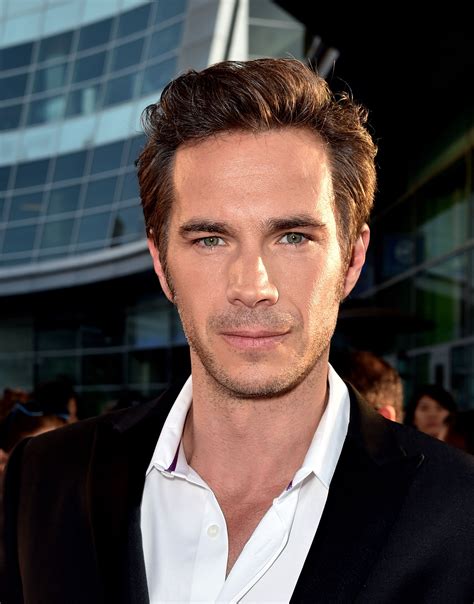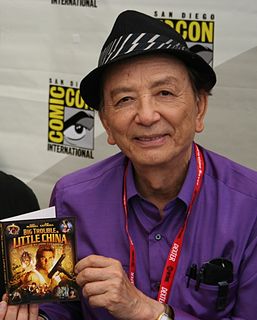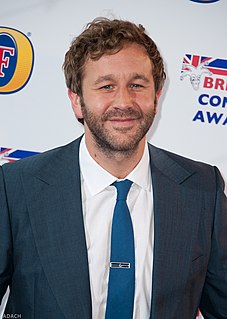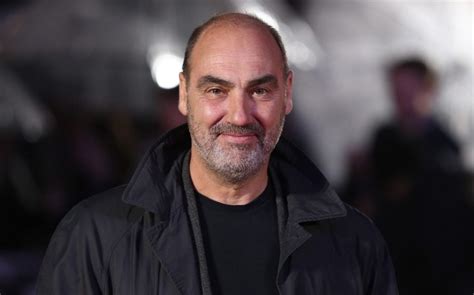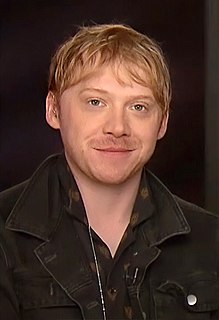A Quote by Guy Pearce
Doing that hunt scene was really quite demanding. I actually broke a rib during that scene. And then all the scenes after that became quite challenging, just breathing and laughing.
Related Quotes
All directors on all sets behave slightly differently depending on what the scene is. For example, if you are doing a love scene, which is intimate then the director is likely to be intimate. If you are doing a scene where everyone is mucking around and laughing then the director is likely to start with that. If you are playing a scene which us incredibly heavy and everyone getting killed then there are probably not many laughs on the set.
We did monologues and scenes, and New York I did a scene from Amadeus and a monologue from Pounding Nails in the Floor With My Forehead by Eric Bogosian, and then in L.A. I switched the scene to This is Our Youth and did the same monologue. I was spiky-haired, super skinny. A lot of people were like, "You should come here and do a sitcom." That was the feedback that I got. Obviously it was quite a different journey than the one I've actually had, but I just listened to people.
I always thought the piano scene was kind of unique to shoot because we were actually able to film with the playback of the actual song. And that was quite amazing because it almost made it easier - music is usually something that is added after filming has finished so to be able to shoot a scene with music was really wonderful.
I don’t know if I’d do an action movie because I don’t know if I could keep a straight face honestly, I just think it’s so silly. Like I love watching them but I can’t imagine me doing one. Actually, you know what I’ve done, just for fun because I didn’t think there was any way that I could be in a superhero movie, so I’ve done a scene in the new “Thor” movie, just for that. I just do like one scene, which was quite fun.
Well I liked the mixture actually. It's really good fun to have throughout a shoot to move from something which is quite character based in certain scenes where there's very little action and you're just working with actors and I suppose I've had quite a lot of practice at that. This is more action than I've had a chance to do so that was fun for me too to go into the action then and have some really good crew working with me. And sometimes you get these scenes where they blend.
I really like the Chris-R scene and of course the "you are tearing me apart Lisa" scene. The reason I love the Chris-R scene is because we worked really hard to finish it. It's not just that though, it brings people together. Everyone is one the roof together by the end of the scene. You see the perspectives of the different characters. I feel like with all the connections in this scene that the room connects the entire world
Rewriting isn't just about dialogue, it's the order of the scenes, how you finish a scene, how you get into a scene. All these final decisions are best made when you're there, watching. It's really enjoyable, but you've got to be there at the director's invitation. You can't just barge in and say, "I'm the writer."
I remember watching Meryl Streep in, The River Wild. There's this scene where she's has a gun pointed at her, it's absurd in a lot of ways. Someone pulls a gun on her I think, I'm not really fully aware of the scene and she just, she starts, you see her terrified. And then all of a sudden she starts to burst out laughing. She starts laughing. Like she can't stop laughing. Because she's terrified and she's emotional and there are no rules to what you're supposed to feel. That to me is like A number one, that's the thing I have to remind myself all the time.
Whether it's one scene or 15 scenes in a film, whether it's the lead or a cameo part, if I don't find it interesting, I tend not to do it. You never really know what it is. It could be a one-scene part. I remember I read the one scene in Crash and was asked to do it. I was like, "Absolutely!" There's no formula for how something has to be. I always try to keep it that way.

